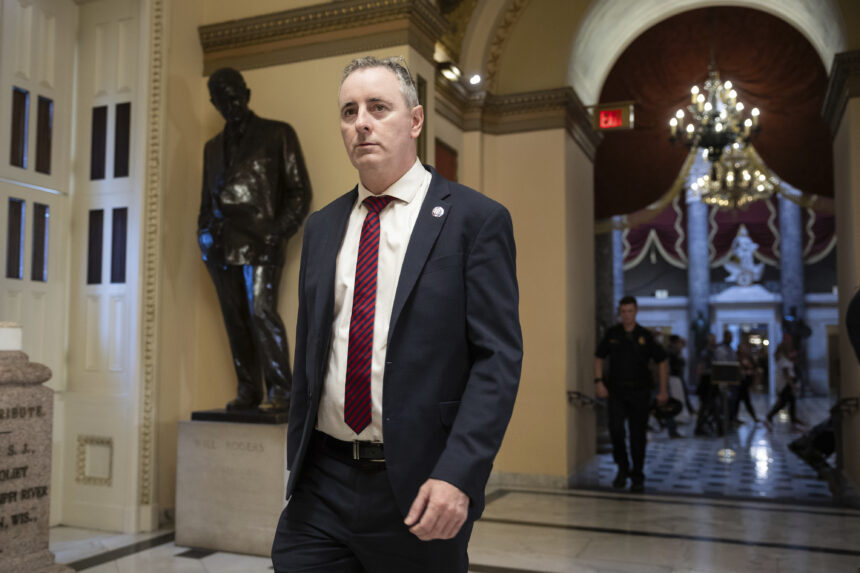Brian Fitzpatrick, a battleground House Republican, made a surprising move by voting against President Donald Trump’s megabill despite pressure from the White House. This decision sets him apart from his MAGA-controlled party and highlights his willingness to break ranks when he believes it is the right thing to do.
The vote made Fitzpatrick one of just two House Republicans to go against the party on the president’s signature domestic policy legislation, a move that some in the GOP fear could harm their chances in the upcoming 2026 midterms. With two congressional Republicans in swing seats already announcing they will not seek reelection, Fitzpatrick finds himself in a vulnerable position as Democrats target his district in their quest to regain control of the House.
Facing potential backlash from MAGA supporters and influencers, Fitzpatrick defended his vote by citing changes made by the Senate to the bill, which he felt negatively impacted key provisions he had initially supported. Despite the risks of intra-party criticism, Fitzpatrick stood by his decision, emphasizing his commitment to prioritizing the needs of his constituents over party loyalty.
The congressman has cultivated a reputation as a moderate Republican, supporting bipartisan initiatives and distancing himself from some of the more extreme elements of his party. His willingness to engage with diverse communities in his district, including visiting mosques, has set him apart from many of his colleagues. However, his recent vote against Trump’s megabill has raised questions among Republicans about his motivations and priorities.
While some Republicans expressed surprise at Fitzpatrick’s decision, others speculated that it may be related to his recent letter opposing the administration’s halt of weapons to Ukraine in its conflict with Russia. Regardless of the reasons behind his vote, Fitzpatrick’s deviation from party lines has sparked debate within the GOP about the importance of loyalty to Trump versus the need for independent decision-making in order to maintain a majority in Congress.
As Democrats prepare to challenge Fitzpatrick in the upcoming election, his vote against the megabill may become a focal point of the campaign. While a pro-Fitzpatrick super PAC praised his bipartisan record, critics argue that his decision was too little, too late and may have negative consequences for his reelection prospects. The congressman’s ability to navigate the complex political landscape of his swing district will be put to the test as he faces potential primary challenges and increased scrutiny from both sides of the political spectrum.
In a party that increasingly demands total loyalty to Trump, Fitzpatrick’s willingness to defy the president on key issues raises important questions about the future of the GOP. As other Republicans face backlash for opposing the megabill, Fitzpatrick’s decision to prioritize his constituents over party politics sets him apart as a unique voice in a deeply divided political landscape.








